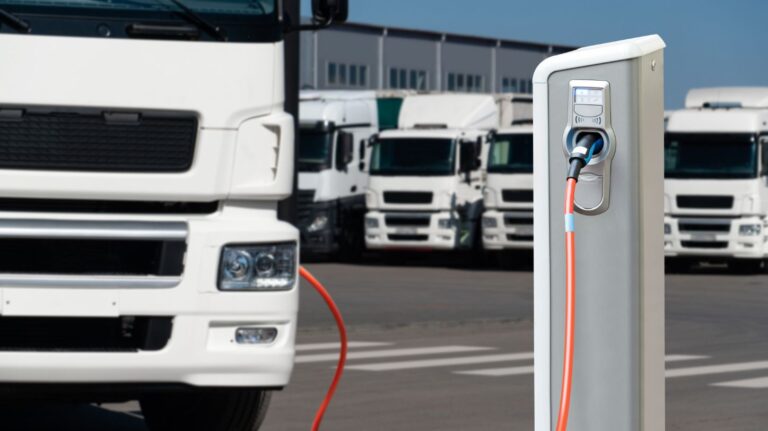More than 40 companies have signed an open letter, addressed to members the European Parliament and representatives of EU member states, calling for action to be taken to ‘increase the ambition level’ of truck CO₂ standards in order to improve the availability of zero-emission trucks.
As well as logistics service providers like APL Logistics, Kuehne + Nagel, and Maersk, brands including Nestlé, PepsiCo, Heineken, Nike, and Currys signed the letter.
The companies say that they are committed to the EU’s 2050 climate neutrality goal and to reduce emissions by 55% by 2030 but believe that in order to meet these targets, more zero-emission trucks must be made available. They claim that while they are all interested in the purchase of such vehicles, the supply of them is inefficient and is not currently meeting demand.
The letter sets out three key recommendations for scaling up the production of zero-emission trucks. The first is to change the currently proposed target of a 45% reduction in emissions by 2030 to a reduction of 65% (when compared with 2019/2020 figures).
The second recommendation is to extend the regulation of climate targets to all truck types as a means of reducing emissions from vehicles like those used for waste collection, construction, and urban delivery.
Finally, the letter recommends a clear date to be set for the point after which 100% of new trucks will be required to be zero-emission. With this date in sight, the organisations believe that more truck manufacturers will ramp up their production of models with fewer emissions.
Archana Jagannathan, chief sustainability officer at PepsiCo Europe, said: “PepsiCo’s ambition to reduce emissions by at least 40% by 2030 and to become net zero by 2040 largely depends on the decarbonisation efforts of our value-chain partners, which includes third party logistics.
“Therefore, the transition towards an affordable and emission-free movement of goods in Europe is our shared responsibility. We urge policymakers in Brussels to set more ambitious CO₂ standards for trucks as it is not only a critical step towards achieving the EU’s climate neutrality goals but also a strategic move for the success of our industry.”
This comes as the European Commission is currently reassessing its CO₂ emissions targets for heavy-duty vehicles, which it claims are responsible for more than a quarter of greenhouse gas (GHG) emissions from road transport in the EU and for over 6% of total EU GHG emissions.
In 2019, the first EU-wide CO₂ emission standards for heavy-duty vehicles were introduced, targeting a reduction of 30% by 2030 compared to 2019/2020 levels. The proposed amendment would increase this to a 45%, reduction, but the signatories of this letter believe that is not enough.
A change in favour of the 65% reduction by 2030 would accelerate the production of zero-emission trucks, with the current proposal not requiring emissions to drop by this much until 2035. According to the group of businesses campaigning for more ambitious targets, this reduction would increase the number of zero-emission trucks on Europe’s roads in 2030 by more than 150,000 when compared to the European Commission’s proposal.





